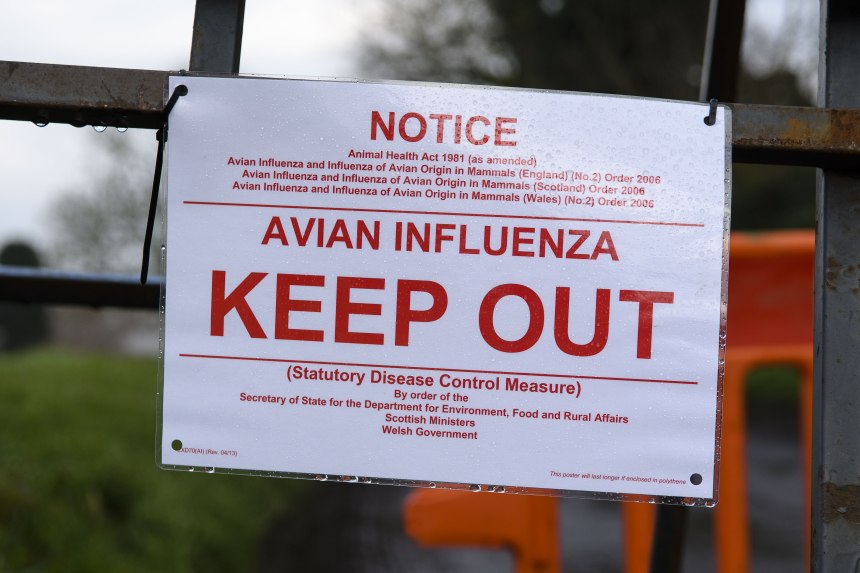Farmers urged to prepare for bird flu risk this winter

Poultry farmers and keepers are being urged to prepare for this winter's potential bird flu outbreaks after dozens of cases were reported last year.
The UK is currently free from avian flu, but over the last year 26 outbreaks were confirmed in kept poultry and captive birds and in over 300 wild birds.
In response, UK-wide measures were introduced to protect poultry from infection from wild birds, including a requirement to temporarily house birds and a ban on bird gatherings.
As winter approaches, the risk of migratory wild birds infecting domestic poultry will rise, according to the UK's four Chief Veterinary Officers' new warning.
They said it was therefore 'vital' that poultry farmers and bird keepers took urgent action to improve biosecurity standards.
In a joint statement, the CVOs said: “As winter approaches we need to be ready for the increased risk of disease that migrating birds pose to our flocks.
“We encourage keepers across the UK to implement strong biosecurity practices now, including regular shed maintenance checks, cleaning and disinfecting footwear and signing up for our email and text alerts.
"Making these tasks a regular fixture of your disease control plans now will make a significant difference in the fight against avian flu this winter and for years to come.”
Bird keepers have been told to maintain good biosecurity practises, such as cleaning footwear, feeding birds indoors, and minimising contact with wild birds.
Farmers and keepers should register their birds on the Great Britain Poultry Register (GBPR), the CVOs said. For those with 50 or more birds, this is a legal requirement.
It comes after British scientists developed a new bird flu vaccine, which they say could provide rapid protection and reduce the virus's spread substantially.
The new vaccine generates a faster and stronger immune response in chickens against the H9N2 strain, compared to the current industry standard inactivated virus vaccine.
Professor Munir Iqbal, of the Pirbright Institute said: "Our improved vaccine could help prevent the spread of flu, which is essential for protecting poultry welfare, increasing food production, and reducing the risk of avian influenza spreading to humans."
Results revealed that the vaccine was both fast acting and effective, with birds producing antibody responses as early as six days after vaccination.
They also shed significantly less flu virus when challenged with a natural flu strain, indicating the birds would be less likely to spread infection.
Elsewhere in the world, Russia confirmed in February the first case of bird flu strain H5N8 being passed from poultry to humans.
The cases, discovered in seven poultry plant workers based in south Russia, were reported to the World Health Organisation (WHO).
Outbreaks of the highly contagious H5N8 strain were reported in the UK last winter, but only in poultry.
Avian influenza strains such as H5N1, H7N9 and H9N2 have been known to spread to humans.








